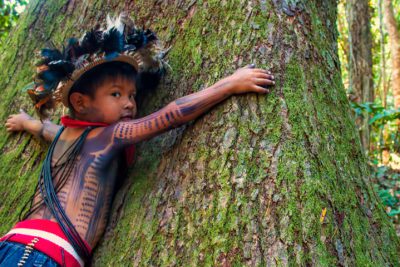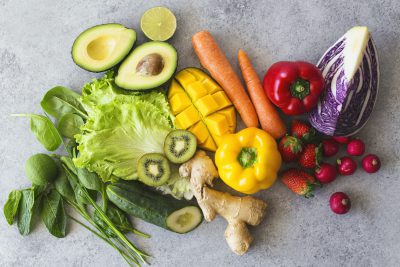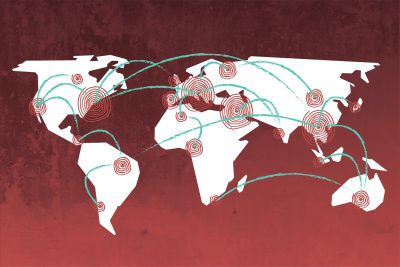International Earth Day is a time of equilibrium: a global opportunity for us to put aside our differences and to address our mutual need to safeguard the Earth for future generations.
biodiversity is everything
From animals and insects to bacteria and plants, Earth is currently home to about 8.7 million different species that form the numerous ecosystems upon which the stability of our planet depends. Few of us may fully understand why individual species, like bees, wolves, and sharks are so crucial to the environments they inhabit, but each species, no matter how small, has an important role to play in boosting ecosystem productivity and sustaining life on our planet.
Similarly, the ecosystems within which these animals exist are also vitally important; not just to the animals themselves, but to all life on Earth. By disrupting ecosystems, we create the conditions that allow animal viruses to cross over into human populations; conditions that have allowed the number of emerging infectious disease outbreaks to more than triple every decade since the 1980s.
As humanity moves ever further into the territories of wild animals by clearing forests to farm animals, graze cattle, hunt, and extract resources, we are increasingly exposed to the pathogens that normally never leave these places and the bodies they inhabit. Through this disregard for nature, humanity has enabled the outbreak of the world-devastating coronavirus, and if we continue on this destructive path, then experts warn it won’t be the last—or the worst—pandemic we’ll be faced with.
That is why we must help to preserve rainforests and other animal habitats, and to protect animals themselves, by refraining from activities that harm them.
The Sixth Mass Extinction of Species
According to a study conducted by scientists at the Universidad Nacional Autónoma de México (UNAM), human activity is currently behind one of the largest mass extinctions of species the world has ever seen, putting us on the edge of Earth’s sixth mass extinction event and threatening the survival of human civilization if we don’t act quickly.
The study found that, in the last century alone, about 477 different species have become extinct because of human overconsumption and destruction of natural habitats. The scientists involved stated that this “biological annihilation” represents a “frightening assault on the foundations of human civilization” that “will have serious ecological, economic and social consequences”. They added:
“All signs point to ever more powerful assaults on biodiversity in the next two decades, painting a dismal picture of the future of life, including human life.”
There is no better day than today to address the threat our planet is facing and to ask what we can do to help.
Causes of Wildlife Loss
Wildlife is dying out due to human activities such as climate change, deforestation, habitat loss, overfishing, unsustainable agriculture, and pollution. This International Earth Day, let’s take a closer look at each.
Deforestation
Trees play a vital role in our survival by removing harmful carbon dioxide (CO2) emissions from our atmosphere. Deforestation causes incalculable environmental damage, both by releasing billions of tonnes of CO2 into the air and driving thousands of species of life to extinction each year.
Just over the past twenty-five years, rainforests have been cleared from an area the size of India and the leading driver of this is animal agriculture. While palm oil, soy, and wood are also big drivers of deforestation, clearing forests to make way for grazing cattle is responsible for 71 percent of Amazon deforestation while 70 percent of all soy grown is actually fed to the animals we eat.
This is why refusing to buy or consume animal products is considered to be one of the most effective ways for an individual to help combat deforestation and habitat loss.
Overfishing
It has been estimated that between 0.97 to 2.7 trillion fish are caught from the wild and killed globally every year, and most fish companies—driven purely by profit—maximize what they pull from the sea with little concern for the methods used to snare their haul. As a result, a shockingly large percentage of the world’s fisheries are now in decline.
In 2003, a scientific report estimated that industrial fishing had reduced the number of large ocean fish to just 10 percent of their pre-industrial population. A study of catch data published in the journal Science grimly predicted that if fishing rates continue apace, all the world’s fisheries will have collapsed by the year 2048.
But overfishing doesn’t just mean we’ll run out of edible fish. In conjunction with dying corals and extreme weather brought about by climate change, it means the collapse of important aquatic ecosystems and, concurrently, the inability of our oceans to sustain life on planet Earth.
Our oceans sustain our planet by regulating the climate and levels of oxygen in our atmosphere, and they have been a powerful ally against global warming, absorbing 93 percent of the carbon dioxide released by human activities. So, when marine conservationist Captain Paul Watson declares “if the ocean’s die, we all die”, he isn’t joking. That’s why we recommend leaving fishing off your plate if you want to help protect the oceans and the whole planet.
Pollution
Worldwide, more than 80 billion land animals are killed for food every year. This not only results in suffering on a massive scale but also colossal amounts of animal waste, some of which is used as crop fertilizer and most of which is stored in huge lagoons.
Run-off animal waste and fertilizers from industrial farms pollute our rivers and our coastal waters. The Environmental Protection Agency (EPA) reports that more than half of all US rivers are now unsuitable for aquatic life, largely due to nutrient pollution from industrial farming practices, while rivers across Europe are contaminated too.
The Mississippi River which, at 2,320 miles long, is the main drainage system on the North American continent, carries significant amounts of fertilizer, organic nitrogen, and phosphorous manure leaks from factory farms down into the Gulf of Mexico, creating the largest hypoxic zone in the world—an ocean ‘dead zone’ spanning over 8,750 square miles. Fluorescent green algae blooms have appeared in the water off the South Coast of America as a result and most marine life has either died or left the area.
Climate Change
Climate change is the defining global challenge of our time. It is something that will impact every animal and plant, every ecosystem, the wellbeing and health of billions of people, and ultimately our ability to survive.
According to the United Nations Food and Agriculture Organization (FAO), animal agriculture is responsible for 14.5 percent of all human-caused greenhouse gas emissions—more than all of the emissions from fuel used in every car, plane, train, and ship on the planet.
Emissions from the animals themselves play a part, but every step in the production of meat, milk, and eggs is carbon-intensive, from the clearing of land for grazing or to grow feed, to the transportation of animals to slaughter. It’s therefore not surprising that climate researchers list reducing our consumption of animal products as one of the best ways in which we can help to sustain our planet, in addition to reducing our use of fossil fuels like coal and oil.
Joseph Poore, an environmental scientist at the University of Oxford, has calculated that through diet change alone we could reduce our global greenhouse gas emissions by up to 50 percent.
Solutions to the biodiversity crisis
According to the scientists behind the most comprehensive environmental impact analysis to date, avoiding meat and dairy products is the single biggest way to reduce your environmental impact on the planet. Their research shows that without meat and dairy consumption, global farmland use (the leading cause of deforestation and the current mass extinction of wildlife) could be reduced by more than 75 percent and still feed the world.
Reductions in land use and resource consumption, changes to how we think about our place in Earth’s ecosystem, and a willingness to give consideration and care to the other species will all lead to a healthier planetary ecosystem.
eat plant-based on international Earth Day
It is essential that we begin to better appreciate our role as a cog in a large and interdependent biological community, and understand that our ability to dominate the planet’s resources does not mean we should. It just means that we’re directly responsible for determining the future of the ecosystem on which we, and all other forms of life, depend.
All living things have an intrinsic value, and each plays a unique role in the complex web of life. We must work together to protect endangered and threatened species. If we do not, extinction may be humanity’s most enduring legacy.
To learn more or for support transitioning to a more sustainable vegan lifestyle, you can access our free Vegan Starter Kit, recipe list, and Health & Nutrition Guide here.



